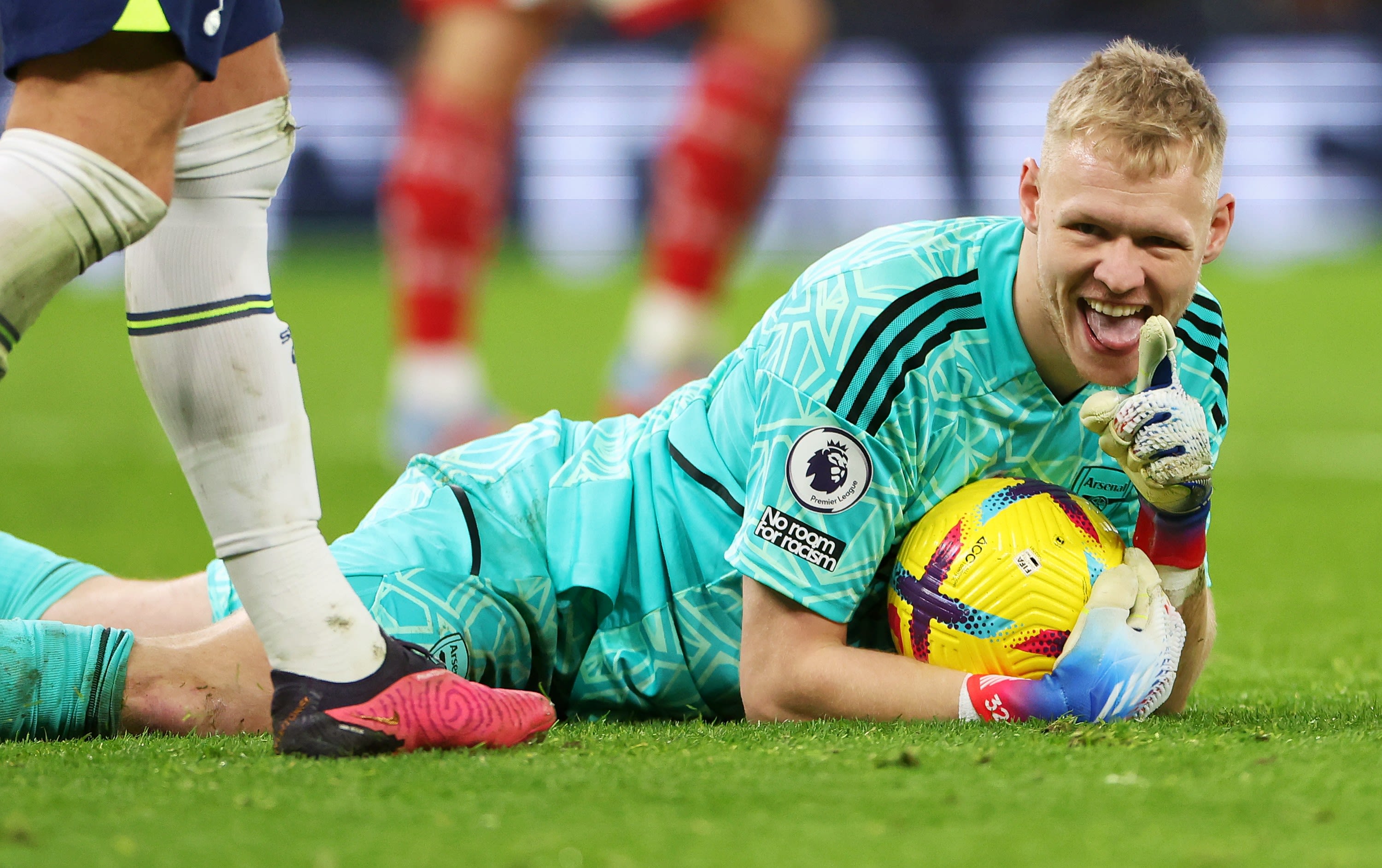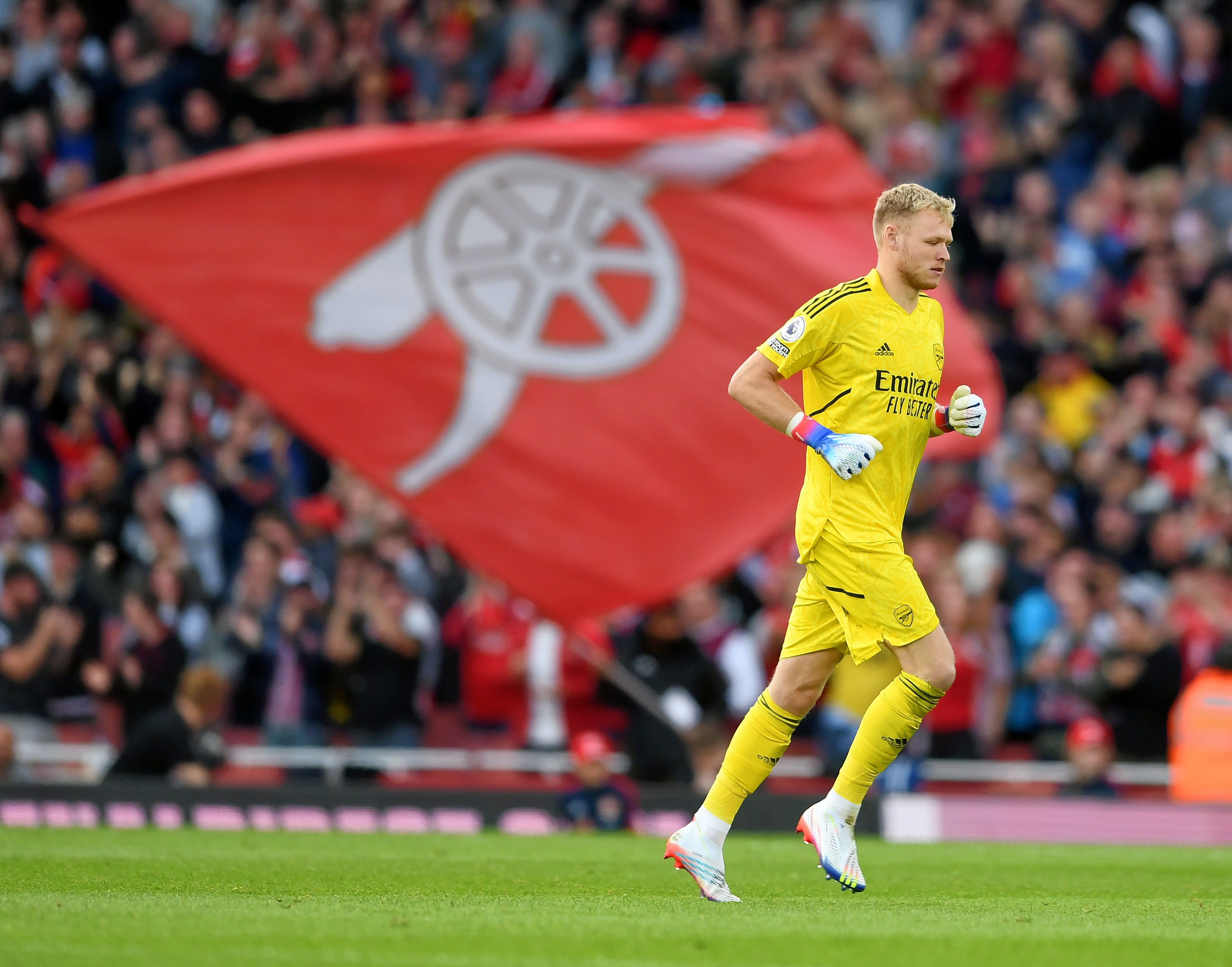Bolton to Buffon: Aaron Ramsdale's goalkeeping idols
Our shot-stopper reveals his early role models, and how he is constantly inspired by competition, raising his standards and playing in high-pressure situations.
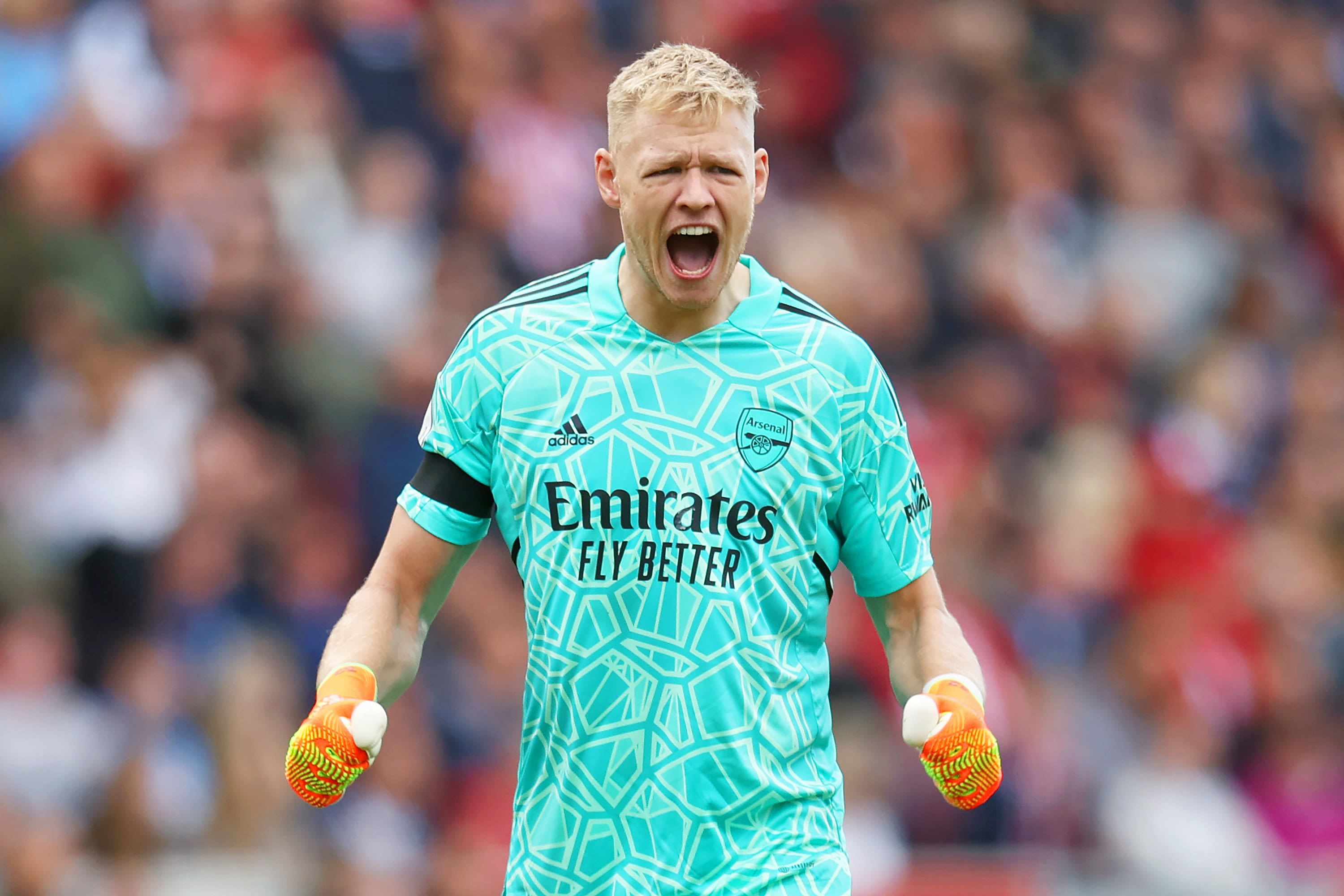
Much of Aaron Ramsdale’s style of goalkeeping can be traced back to his days in the Bolton Wanderers youth system.
Legendary goalkeeper Jussi Jaaskelainen was Bolton’s number-one stopper throughout Aaron’s time at the club – during his early teens – and the Finn had a huge influence on the Stoke- on-Trent born youngster.
Jussi actually joined Bolton in 1997, a year before Aaron was even born, and would go on to make more than 500 first-team appearances during a 15-year career for
the Trotters.
It was towards the end of his time there that he began working with promising young keeper Aaron, who had joined after impressing Bolton’s goalkeeping coach at a local soccer school.
“As I was going through the Bolton system Jaaskelainen was a big part of my career – he was my early inspiration,” our No.1 begins.
“Being able to watch him every other weekend at the home games was obviously huge for me, and then becoming close family friends with him and being able to speak to him about football and play in the garden with him and his son William, who's the same age as me.
“I’m still very close with them, but for me at that age to be around a Premier League player was huge. Also his coach at Bolton, Fred Barber, was the one who trained me in Stoke.
“He’s still coaching at Crewe, after being at Bolton for years, and has a goalkeeping school in Stoke which is where I went to before moving to Bolton. So we had a connection with the Jaaskalainens through different people, and he was definitely an inspiration for me.”
The Finnish stopper, who won more than 50 caps for his country, was such a big influence on young Aaron that many of his traits can be seen in our goalie still today.
“Yes, things like my set position,” Aaron explains. “Obviously getting coached by the same coach that Jussi worked with in Fred, he obviously stuck to his principles and taught all of the people who went to that goalkeeping school the same way.
“So you are given the basis, but then you see someone in the Premier League doing it week in, week out, you know it’s working. So probably the way I position my hands and my legs are very similar to Jussi. I think it’s more subconscious though, after years of training that way with Fred.
“If you see it in people you look up to, you’ll try it, and if it sticks, it stays forever without you even thinking about it.”
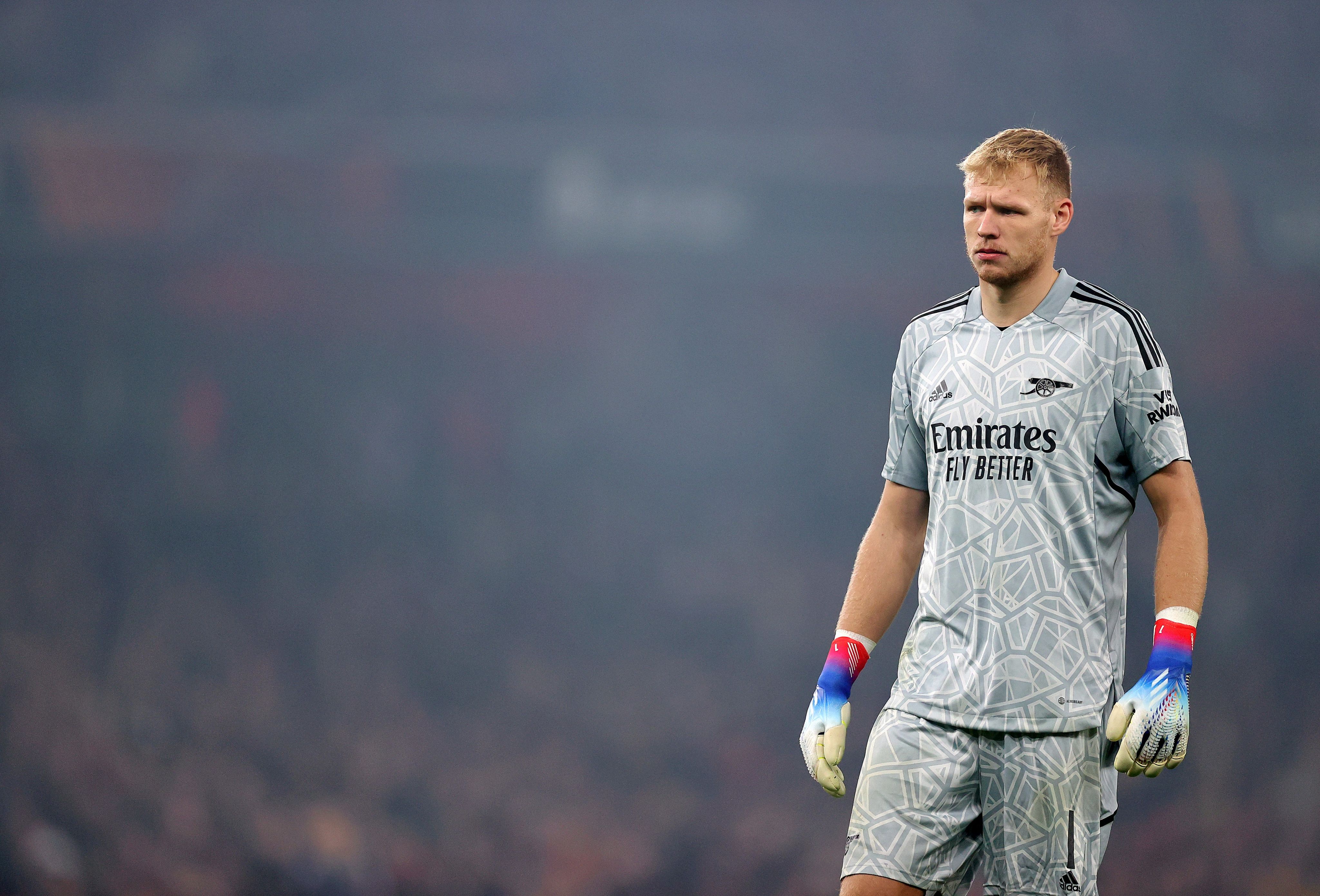
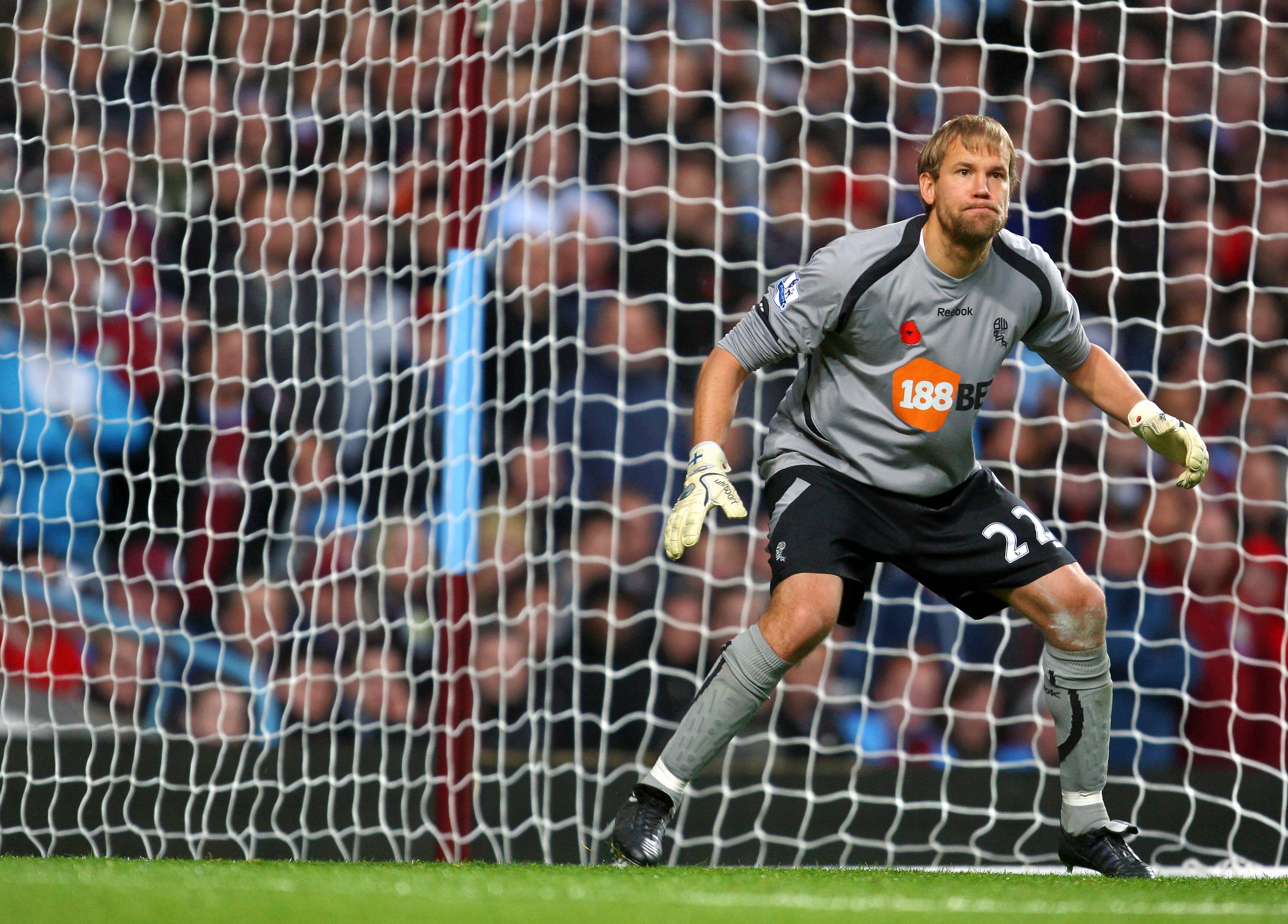
Aaron’s other early goalkeeping inspiration was Gianluigi Buffon. The Italian World Cup winner of 2006 who’s still active today, back at first club Parma in Serie B, at the age of 45.
“My first real memory of football and goalkeeping was the 2006 World Cup,” Aaron, who was eight at the time, continues. “That’s when I got Buffon’s goalie shirt, the gold Italian shirt with a little white undershirt, around the collar. It was short-sleeved, which is probably why I like to wear short sleeves now. So he was probably the first one I looked up to on TV.
“He was the first goalkeeper I really watched, and liked the way he played. It was probably the kit as well, a goalie with short sleeves, he stood out and he was a star. I think he had the headband too at that point, and they obviously won on penalties, so he was the first one I remember watching. I watched him win the World Cup, and I thought ‘wow’ but I wouldn’t say I’ve got anything from his game especially. I’d love to take his longevity though!”
Role models such as Jaaskelainen and Buffon are not Aaron’s only source of inspiration however. As a goalkeeper he says he is particularly motivated and driven by a sense of competition.
Goalies naturally work and train together a large amount of the time, but the element of competition is obviously intensified, as there is only one shirt that they are all fighting for.
These personal rivalries are something that all keepers have in common, but Aaron says it exists across the team in the outfield players too.
“I think it’s only more pronounced for us because only one of us plays. It’s still super competitive with the likes of, for instance Reiss Nelson and Gabi Martinelli. That’s a big battle on the training pitch and both players give it their all every single session. But at the end of the day, Reiss could still play as well if Gabi plays.
“So I think it’s just heightened for us goalkeepers – we’re in a different coloured kit, only one of us can play – we stand out. But it goes on everywhere in the team. I think when people talk about the dressing room being good, that’s another part of it because, we have a squad of 20 or 22 and there are two players for each position, so it’s still very personal with each other all over the pitch.”
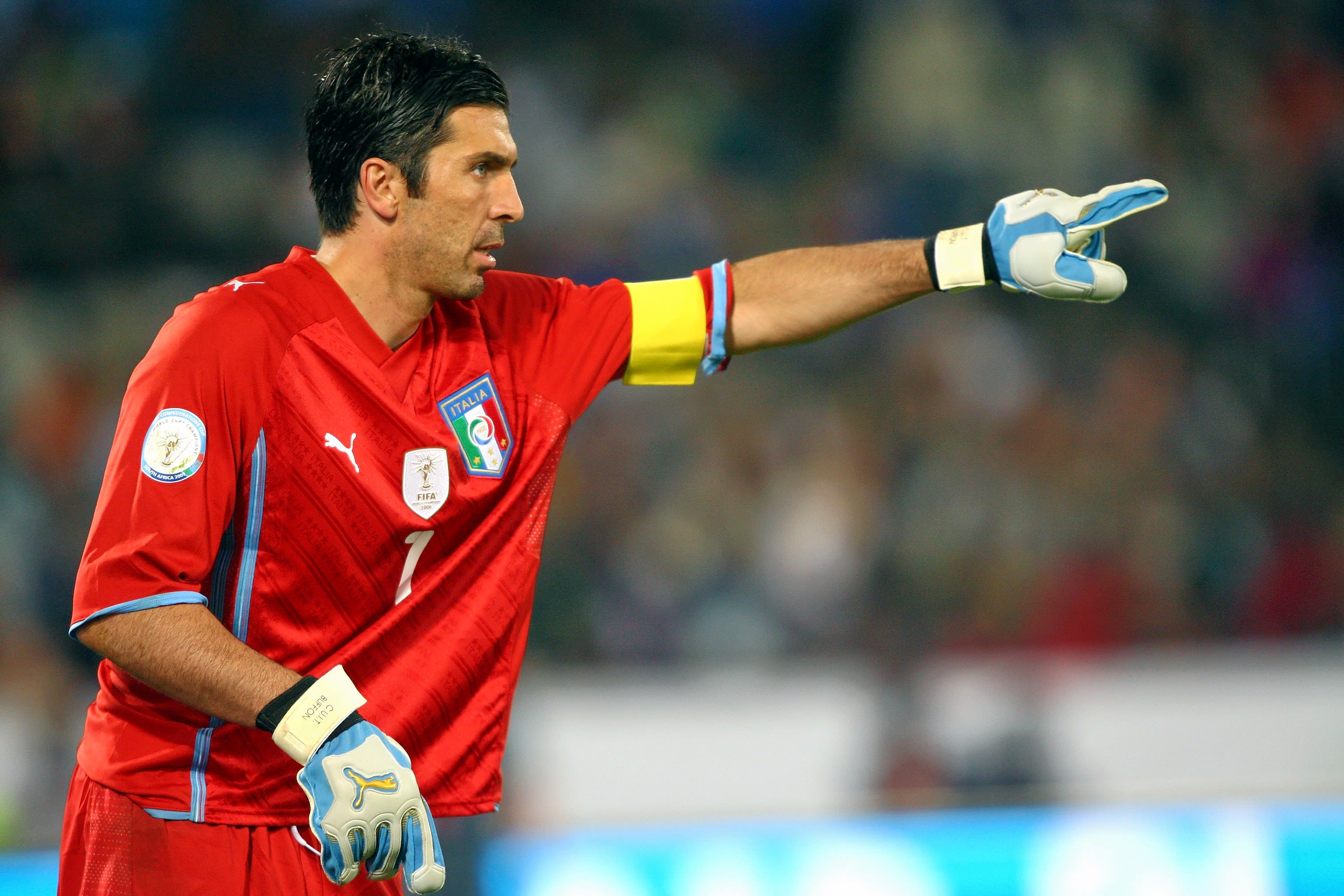
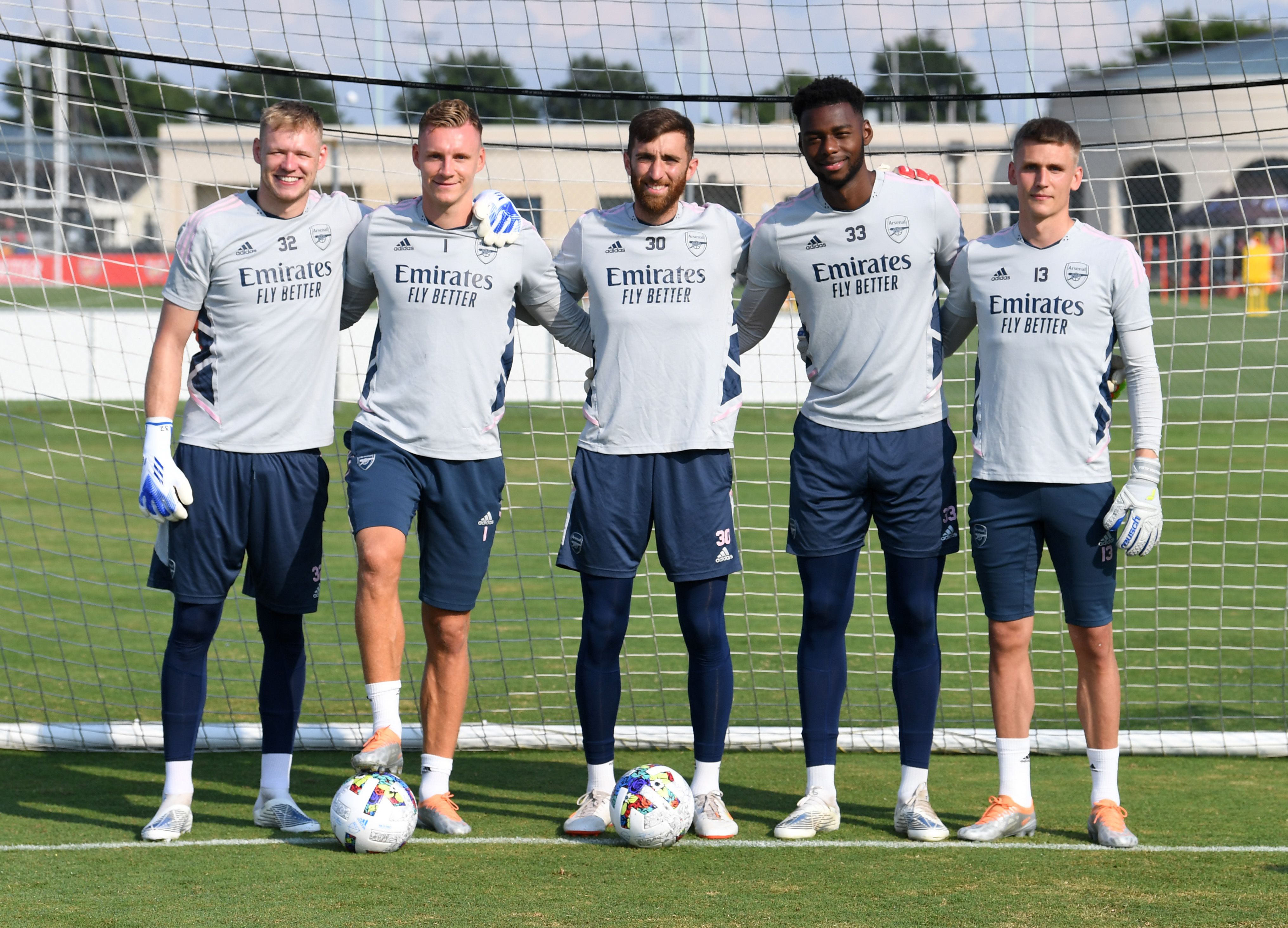
"for us goalkeepers – we’re in a different coloured kit, only one of us can play – we stand out"
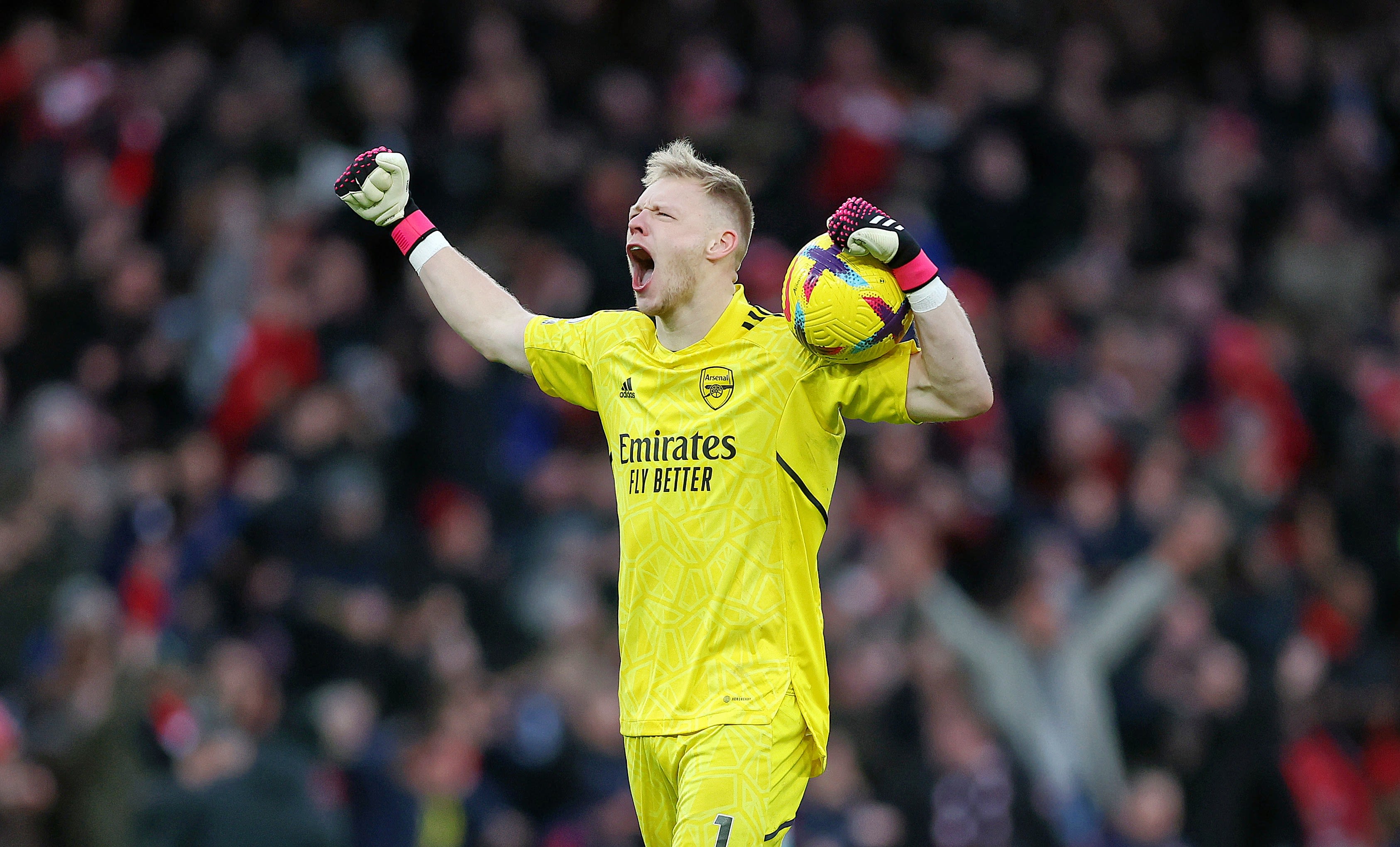
Competition for places and having a direct rival looking to take your spot usually leads to increased performance, Aaron believes, and he says he looks to use that to his benefit where possible.
“You use it motivation as much as you need really, but I need to focus on myself because there’s no point worrying about others and then my own performances slip.
“When I was in the academy at Bolton, I was competing with William Jaaskelainen – the son of a major Premier League goalkeeper – and he’s also a goalkeeper himself.
So it was me and Will from the age of 10 or 11 up to about 16 playing in the same age group and we’re both goalkeepers.
“So that’s a big thing, and he had his own battles, with people saying he was only there because of his name. Which was outrageous by the way because of how good of a goalkeeper he was.
“Then when you become a young academy player and sign pro, you also want to prove that you were better than the Premier League goalie who’s number one at your club.
“At that age you will probably also have a trialist coming in, and you obviously have to stay respectful, but at the same time you are trying to show them that this is your spot, this is your team and your teammates.
“But as I said, if I start thinking too much about anyone else, then I’m taking my eye off my situation. So you use it to a certain degree, but you have to focus on yourself because if you focus on yourself and you know how good you can be, that takes care of it.”
Now that Aaron is the one in possession of the No. 1 shirt, he says he doesn’t have any shortage of people around him to keep inspiring him and motivating him to hit new heights.
“My family definitely keep me reminded of what I still need to achieve,” he reveals. “I might have achieved some things in my career so far, but I haven’t achieved what anyone wants, especially in terms of winning trophies and for how many years you want to be playing at the top for.
“My fiance’s brother is a big Arsenal fan so he reminds me quite often what I still need to achieve! But yeah, I think that motivation comes from within as well. Although I don’t necessarily set specific, major goals for myself, I do have the main ambitions of wanting to win a trophy, or having a 15-year career and stuff like that. That comes from within, but my family and in-laws are always there to help push me too.”
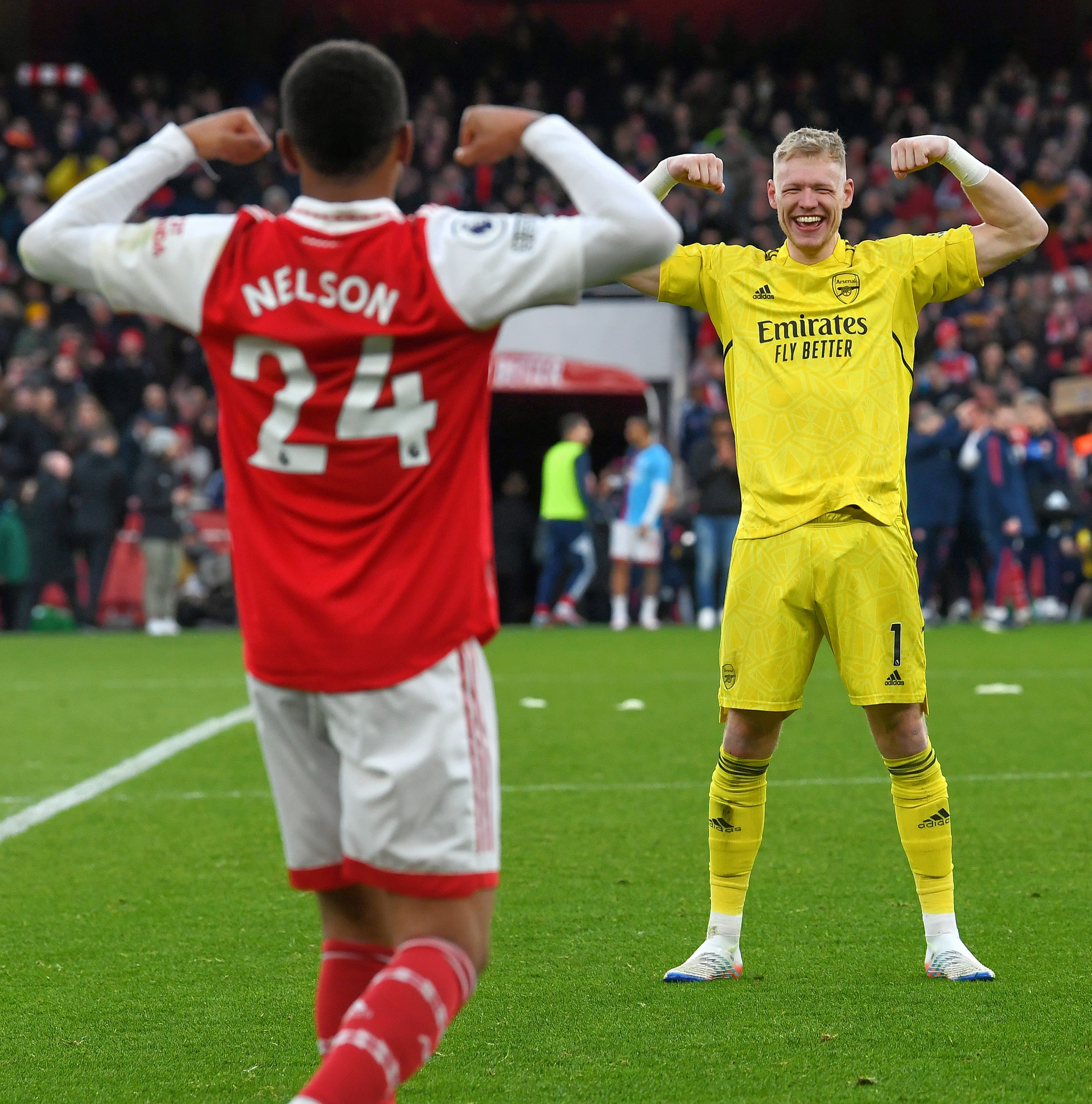
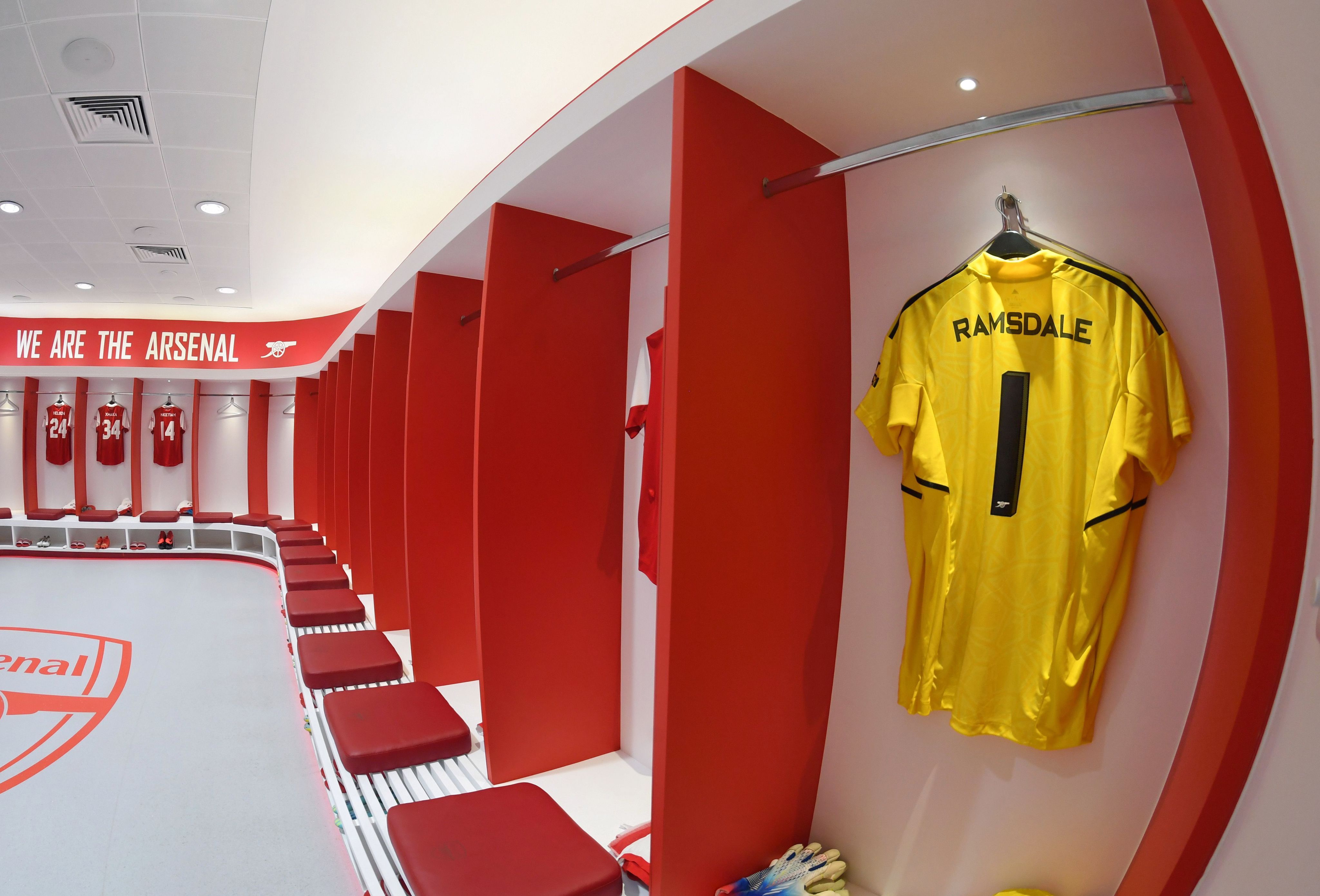
"I do have the main ambitions of wanting to win a trophy, or having a 15-year career"

Part of the 24-year-old’s self-motivation comes from playing in the big games. He is always roused by the big occasion, and thrives from the pressure that comes with them.
“Yeah, I’ve never really been a massive fan of training, because there’s nothing on it,” he continues. “Of course you have to train well and you don’t want to be throwing the ball in every five minutes in training. But if you do throw one in or make a mistake, it just resets and you go again. But that’s something which the manager does really well, there is a competitive side to training which allows me to enjoy it more.
“Sometimes there’ll be things on it, such as the losing team pays for dinner or stuff like that. So that’s a good side of it, which has allowed me to enjoy it more.”
He believes this thirst for the big occasion and pressure situations can be traced back to his early days at Bournemouth, when he was still a teenager.
“When I moved to Bournemouth from Sheffield United, I was third-choice, which meant still travelling to the Premier League games and not playing for our under-21s.
“But I was still playing for England Under- 19s at the time. We went and won the Euros in Georgia and I played more times for England under-19s in a six-month span than I did for Bournemouth. They were qualifiers and the tournament, so competitive games. So I think it comes from there, knowing that I haven’t played any club football and then I’m going into a European game against Germany in the group stage, and I have to perform.
“So I love the bigger games, and as I’ve said before, I love the fans being there because they help me concentrate more, and being able to feel the pressure.
“I try to rise to it, and enjoy it, but obviously that doesn’t mean that all the big games go my way.
“It’s snowballed really from my time at Bournemouth, because it’s unheard of to play more international games than club games.”
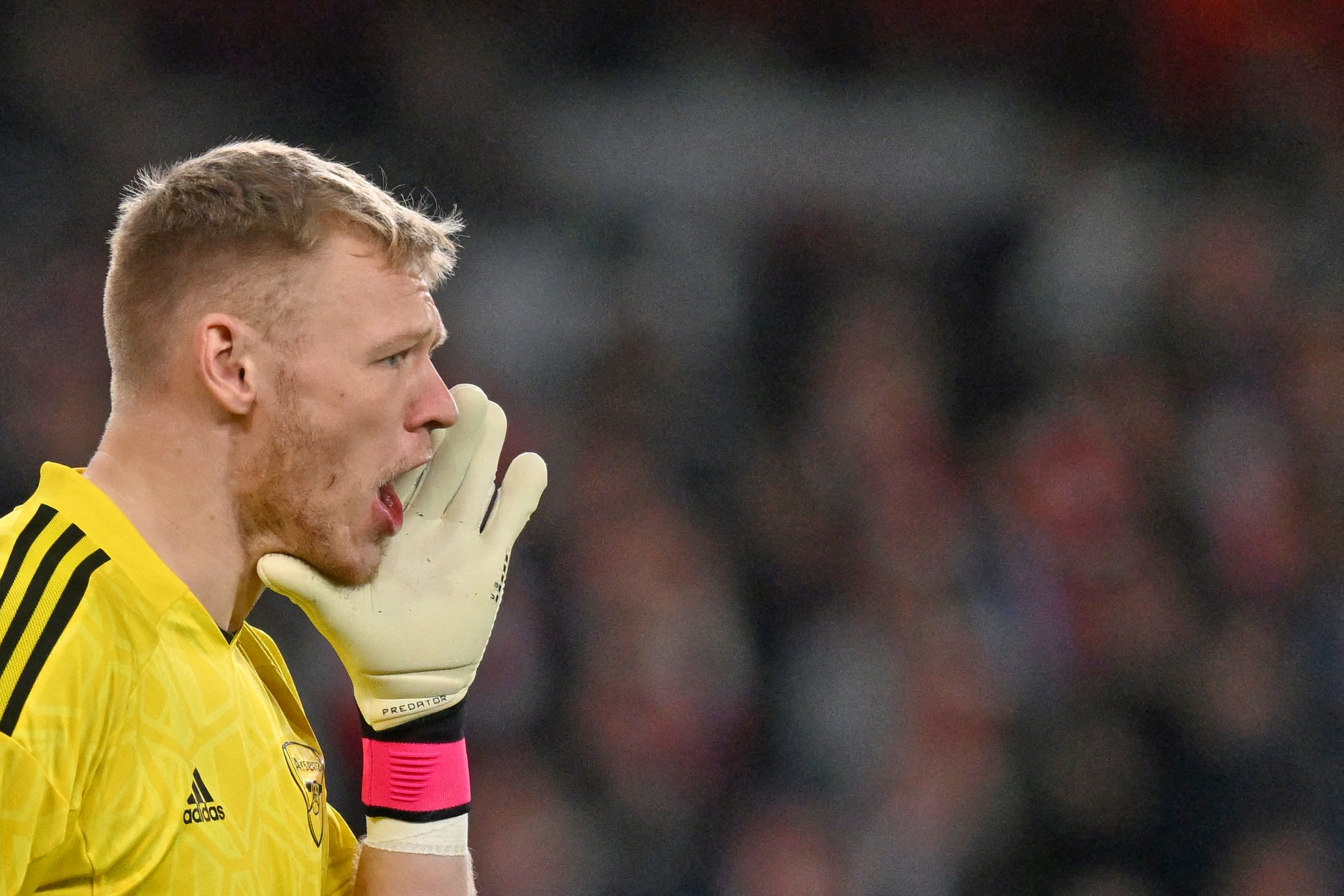
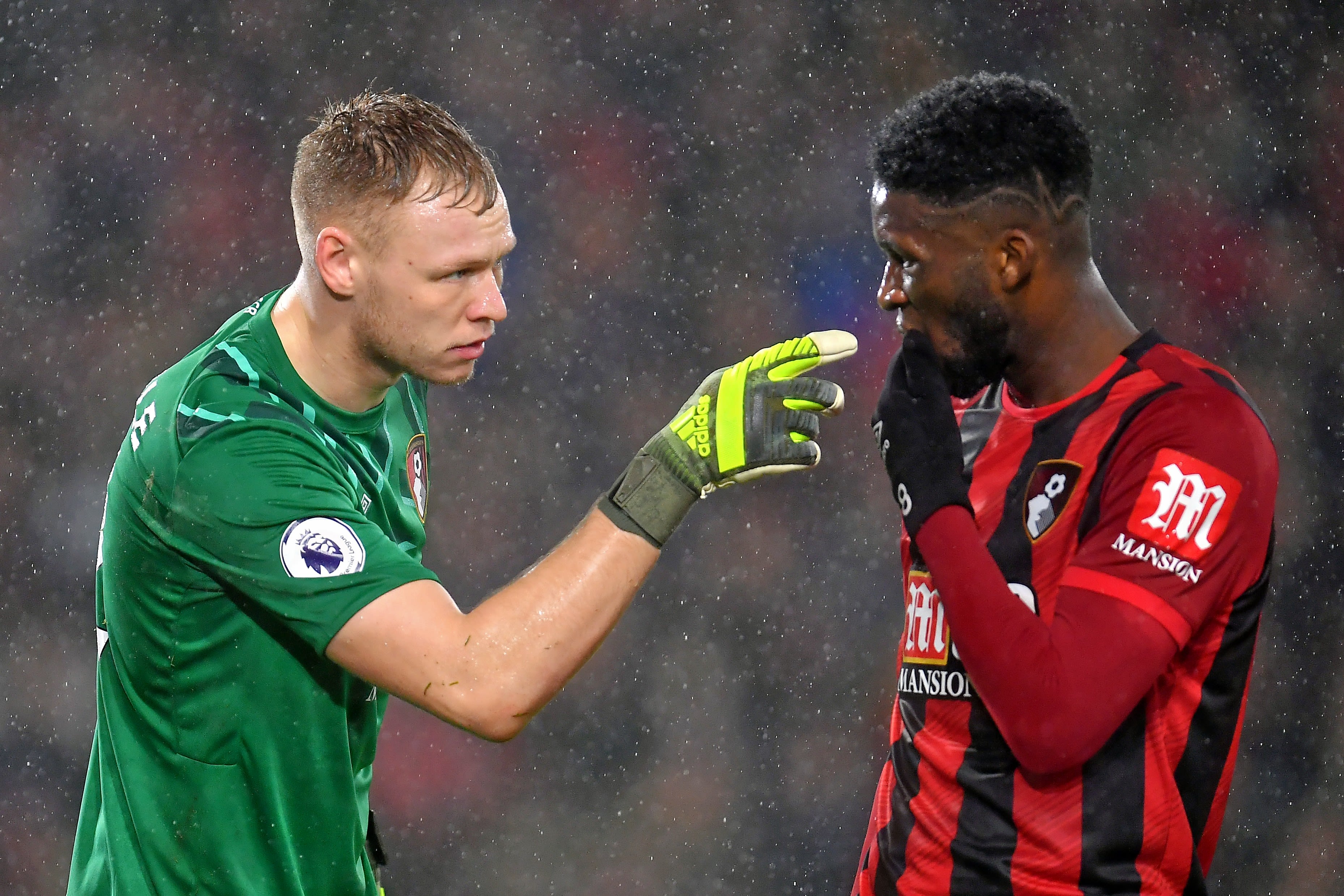
His career continued to snowball after establishing himself at Bournemouth, then back at Sheffield United, before joining Arsenal at the start of last season.
He was soon a regular starter in the team, winning the Arsenal Player of the Month award in both October and November.
It was towards the end of that November though, in 2021, that he lost his first game for the club – 4-0 away to Liverpool.
Afterwards he gave an interview to club media stating that Liverpool had shown the standards that we needed to aspire to as a team, and he says that another part of his makeup as a footballer is always aspiring to improve, using others as a benchmark.
“I think as individuals you do that,” he states. “The manager is so focused on us as a team looking at ourselves, but obviously we all see stats of how great teams have done it – in terms of clean sheets or goals scored, and how far they have got in competitions and then managed to maintain it.
“As individuals you know who the best teams are, and for the past four or five years that’s been Man City and Liverpool. Man City are still doing it this season so you know what the benchmark is. And I think that’s what we’re excited for as well, because we don’t want this just to be one season where we’re fighting at the top.
“We want this to be our first stepping stone, next season go again with Champions League football too, and try to balance Premier League and European football. Go again and again and keep improving.”
So it’s clear that Aaron doesn’t have to look far for inspiration currently. Whether it’s being motivated by the season run-in, the big games to come over the next couple of months, or just his own hard-wired desire to keep improving, our No. 1 – who won the Premier League Save of the Month award for his stop from Bournemouth’s Dango Outtara in March – certainly has an extra spring in his step right now.
But if he does ever find the going tough, where does he turn to?
“If I did ever find myself complaining or needing that motivation, my dad would tell me about my grandad Ron, who died before I was born.
“If I was ever on the phone to my dad, saying something like: ‘I couldn’t get up for this training session’ or whatever, my dad would pretty quickly tell me to remember where I am. He’d remind me that my grandad had to choose being a teacher over being a professional footballer, because of his dad, so I need to realise how privileged I am.
“But to be honest I have enough motivation inside me and around me, that he hasn’t needed to say that. My fiancé keeps me going, my family do as well and well there’s plenty to play for isn’t there?”
